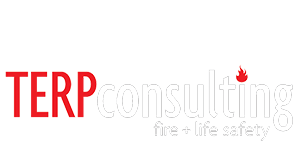Recreational Cannabis Facility in Maryland
What fire/life safety occupancy requirements must be followed to comply with the Maryland Cannabis Administration’s regulations?
In recent years, the United States has witnessed a sweeping trend toward the legalization of both medical and recreational cannabis. On July 1, 2023, Maryland officially became one of the latest states to embrace this change and joined the growing list of states that have legalized recreational cannabis use and possession. Voters in the state of Maryland approved a November 2022 referendum to legalize marijuana for adult use. This landmark decision resulted in a host of opportunities and challenges, not the least of which involves ensuring the safe operation of marijuana production and processing facilities, testing labs, cultivations, and cannabis dispensaries.
The legalization of recreational marijuana in Maryland brings with it a series of stringent regulations mandated by the Maryland Cannabis Administration that must be adhered to by cannabis-licensed businesses involved in the production, processing, growing, and distribution of cannabis. To become compliant with state regulations set forth by the Maryland Cannabis Administration, labs, dispensaries, grow houses, and marijuana production/processing facilities that have received their cannabis business licenses are turning to specialized fire protection engineering firms like TERPconsulting to navigate the complex landscape of mandated fire and life safety building codes and regulations.
What fire protection regulations need to be followed to ensure the safety of a marijuana facility?
One of the critical aspects of compliance in the recreational cannabis industry is the implementation of robust safety measures within production and processing facilities as well as testing labs, cultivations, and dispensaries. Cannabis production involves various processes that can present fire hazards, including the cultivation, extraction, and drying of the marijuana plant. These hazards are compounded by the presence of flammable materials such as oils, solvents, and chemicals used in extraction processes.
This is where fire protection engineering firms like TERPconsulting come into play. TERPconsulting specializes in assessing fire risks and developing comprehensive fire protection strategies tailored to the specific needs of cannabis occupancies including production and processing facilities and cannabis dispensaries. By conducting thorough life and safety code reviews, HazMat risk assessments, and designing fire alarm and fire sprinkler systems, TERPconsulting helps cannabis licensed businesses identify potential hazards and design safety measures that comply with the state of Maryland’s recreational cannabis regulations mandated by the Maryland Cannabis Administration.
Using their extensive knowledge of NFPA 13 – Standard for the Installation of Sprinkler Systems, the licensed fire protection engineers at TERPconsulting design fire suppression systems focused on sprinkler systems specifically developed for cannabis-based occupancies. With a skilled understanding and expertise of Maryland’s fire codes and local ordinances, TERPconsulting can assist with the compliance measures necessary to meet life/safety codes and work with authorities having jurisdictions (AHJs) to ensure Maryland’s cannabis dispensaries are safe spaces.
Cannabis occupancies such as cultivations, dispensaries, labs, and production facilities also call for following the mandates outlined in NFPA 72 – National Fire Alarm and Signaling Code. Implementation of NFPA 72, which encompasses smoke detectors, heat detectors, manual pull stations, and alarm panels, is another specialty of TERPconsulting’s fire protection engineers. The cannabis specialists at TERPconsulting have worked closely with authorities having jurisdictions (AHJs) to design comprehensive fire alarm systems for marijuana facilities in Colorado, California, and Nevada and are up to date on the most current codes and standards specifically regulating the cannabis space.
What are the steps for navigating compliance issues in Maryland’s recreational cannabis industry?
TERPconsulting is at the forefront of ensuring compliance with Maryland’s safety regulations in the recreational marijuana industry. TERPconsulting’s team of experienced fire protection engineers and code consultants can assist cannabis-licensed businesses like cannabis dispensaries in establishing facilities that prioritize safety without compromising operational efficiency. TERPconsulting’s fire protection expertise encompasses various critical areas:
Risk Assessment: TERPconsulting can assess the specific risks associated with different stages of cannabis production, from cultivation to extraction, processing, and storage. This allows businesses to identify potential fire hazards and develop proactive strategies.
Code Compliance: State regulations can be complex and ever-evolving. TERPconsulting stays abreast of the code changes and helps businesses adhere to the latest fire safety codes, ensuring that their facilities and cannabis dispensaries meet all necessary requirements to be in compliance with the Maryland Cannabis Administration regulations.
Designing Fire Protection Systems: Over the last several years, TERPconsulting has amassed significant experience collaborating with cannabis facilities in California, Colorado, and Nevada to design and implement fire protection systems tailored to the unique needs of the marijuana industry’s testing labs, dispensaries, cultivations, and processing facilities. This includes designing fire suppression systems, smoke detection systems, and ventilation controls.
Ongoing Code Support: As the cannabis industry evolves, so do safety regulations. TERPconsulting provides ongoing support to ensure that facilities remain in compliance with changing codes and standards. In fact, NFPA 420 — Standard on Fire Protection of Cannabis Growing and Processing Facilities, is currently being developed by the National Fire Protection Association. Until NFPA 420 is finished, most regulators are requiring business owners to adhere to International Fire Code (IFC) or NFPA 1 — Fire Code, which outlines the establishment of safety measures recommended for cannabis extraction processing such as gas detection, ventilation, and fire suppression. NFPA 1 also defines minimum fire/life safety requirements.
The legalization of recreational cannabis in Maryland demands that cannabis-licensed businesses pursue a responsible and safety-oriented approach when building and renovating their facilities and work hand in hand with authorities having jurisdictions. The collaboration between marijuana production/processing facilities and specialized fire protection engineering firms like TERPconsulting is essential to achieving this. By prioritizing fire safety through risk assessment, code compliance, and the implementation of appropriate fire protection systems, cannabis businesses can thrive while ensuring the well-being of their employees, customers, and facilities.
Let our Cannabis Facility Experts know how we can help you today!



